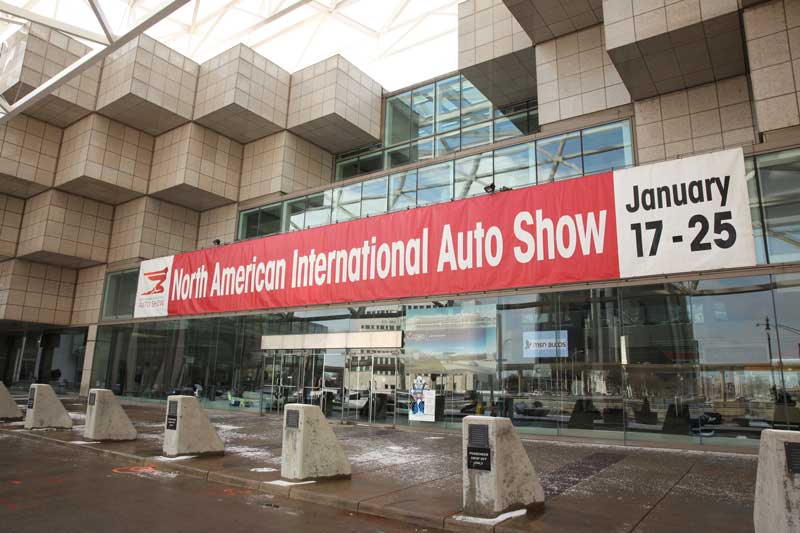
Robohub.org
Detroit Auto Show and more robocar news

Robocar news continues after CES with announcements from the Detroit Auto Show (and a tiny amount from the TRB meeting.) Google doesn’t talk a lot about their car, so the address by Chris Urmson at the Detroit Auto Show generated a lot of press.
Notable statements from Chris included:
- A timeline of 2 to 5 years for deployment of a vehicle
- Public disclosure that Roush of Michigan acted as contract manufacturer to build the new “buggy” models — an open secret since May
- A list of other partners involved in building the car, such as Continental, LG (batteries), Bosch and others.
- A restatement that Google does not plan to become a car manufacturer, and feels working with Detroit is the best course to make cars
- A statement that Chris does not believe regulation will be a major barrier to getting the vehicles out, and they work regularly to keep NHTSA informed
- A few more details about Google’s own LIDAR, indicating units are the size of coffee cups. (You will note the new image of the buggy car does not have a Velodyne on the roof.)
- More indication that things like driving in snow are not in the pipeline for the first vehicles
Almost all of this has been said before, though the date forecasts are moved back a bit. That doesn’t surprise me. As Google-watchers know, Google began by doing extensive, mostly highway based testing of modified hybrid cars, and declared last May that they were uncomfortable with the safety issues of doing a handoff to a human driver, and also that they have been doing a lot more on non-highway driving. This culminated with the unveiling of the small custom built buggy with no steering wheel. The shift in direction (though the Lexus cars are still out there) will expand the work needing to be done.
Car company announcements out of the Detroit show were minor. The press got all excited when one GM executive said they “would be open to working with Google.” While I don’t think it was actually an official declaration, Google has said many times they have talked to all major car companies, so there would be no reason for GM to go out to the press to say they want to talk to Google. Much PR over nothing, I suspect.
Ford, on the other hand, actually backtracked and declared “we won’t be first” when it comes to this technology. I understand their trepidation. Being first does not mean being the winner in this game. But neither does being 2nd — there will be a time after which the game is lost.
There were concept vehicles displayed by Johnson Controls (a newcomer) and even a Chinese company that put a fish tank in the rear of the car. You could turn the driver’s seat around and watch your fish. Whaa?
In general, car makers were pushing their dates towards 2025. For some, that was a push back from 2020, for others a push forward from 2030, as both of those numbers have been common in predictions. I guess now that it’s 2015, 2020 is just to realistic a number to make an uncertain prediction about.
Earlier, Boston Consulting Group released a report suggesting robocars would be a $42B market in 2025 — the car companies had better get on it. With the global ground transportation market in the range of $7 trillion in my guesstimate, that’s a drop in the bucket, but also a huge number.
News from the Transportation Research Board annual meeting has been sparse. The combined conference of the TRB and AUVSI on self-driving cars in the summer has been the go-to conference of late, and other things usually happen at the big meeting. Released research suggested 10% of vehicles could be robocars in 2015 — a number I don’t think is nearly aggressive enough.
There also was tons of press over the agreement between NASA Ames and Nissan’s Sunnyvale research lab to collaborate. Again, not a big surprise, since they are next door to one another, and Martin Sierhuas – the director of the research lab – made his career over at NASA. (Note of disclosure: I am good friends with Martin, and Singularity U is based at the NASA Research Park.)
A version of this post originally appeared on robocars.com.
tags: Automotive, autonomous driving, c-Events, robocars





